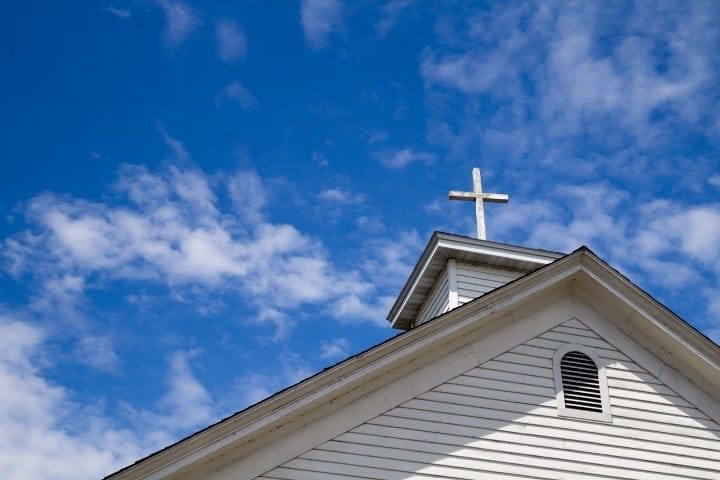
SINGAPORE — New health ministry guidelines in Japan will consider as abuse any acts by members of religious groups who menace or coerce their children to engage in religious activities, or that obstruct a child’s career path using religious doctrine.
Based on unnamed sources quoted by Japanese daily Yomiuri Shimbun, the Health, Labour and Welfare Ministry is working on its first draft of guidelines for local governments to tackle cases of child abuse linked to religious groups such as the Unification Church, officially known as the Family Federation for World Peace and Unification.
Children of religious groups’ followers have lambasted the Japanese authorities’ hitherto handling of this matter. The children complained that child consultation centers and the police failed to respond to their allegations of abuse. Instead, the children were told that the police could do nothing since freedom of religion is enshrined in the Constitution.
In October this year, the ministry instructed local governments not to make cursory responses merely because a problem is religious in nature. Moreover, the ministry is preparing specific points in the guidelines that the authorities should bear in mind when addressing such cases.
Based on media reports, the expected guidelines will be in a question-and-answer format and will indicate which faith-based acts against children fall under the categories of abuse as designated in the Child Abuse Prevention Law.
The law stipulates four types of abuse: physical, sexual, neglect and psychological.
Arousing fear by telling children they will go to hell if they fail to participate in religious activities, or stopping them from making decisions about their career path, is considered psychological abuse and neglect according to the guidelines.
Other acts that will be classified as neglect include not having the financial ability to offer adequate food or housing for children due to large donations made to religious groups, and parental bans on their children’s interaction with friends owing to a difference in religious beliefs, thus undermining their social skills.
The guidelines will encourage child consultation centers and local governments to take note of the possibility that children cannot admit the damage caused by abuse after being influenced by doctrine-based thinking and values.
To prevent parental abuse from escalating and pressure from religious groups from increasing as a result of the new guidelines, the latter would prioritize the safety of children by taking them into temporary protective care. For children 18 years of age or older, who do not qualify for protection by child consultation centers, local governments should instead refer them to legal support centers, welfare offices, and other consultation facilities.
Although guidelines already are in place for child consultation centers on how to deal with abuse, this will be the first time that they are prepared specifically for children of religious followers.
The scandal-ridden Unification Church emerged in the limelight in 2022 after former prime minister Shinzo Abe was murdered by a man with a long-standing resentment against the religious group. When Tetsuya Yamagami was arrested for killing Abe in July, he singled out the Unification Church for impoverishing his family; thus he had targeted Abe, who had been present at events sponsored by Unification Church-affiliated groups.
Abe’s assassination unveiled the group’s close ties to the ruling party and catalyzed a public backlash. In November this year, Japan began an investigation of the church that could threaten the legal status of the religious group.
As the Unification Church was founded in South Korea in 1954 and depends on its Japanese followers as a major source of income, this recent probe could undermine their finances severely by depleting its tax exemptions and even its property holdings.
Prime Minister Fumio Kishida’s government has a vested interest in curbing the public outcry over his party’s relations with the Unification Church. After all, his government has an approval rate of just 30 percent, which prompted the resignation of the economic revitalization minister recently.
“For Kishida, it’s clear that this is a huge drag on him. He’s going to be linked to the Unification Church issue no matter what,” said Levi McLaughlin, an associate professor at North Carolina State University studying religion in Japan.
The prime minister has come under mounting pressure to address public anger provoked by revelations that more than half of all lawmakers in his party have links to the church. The furor has continued despite the Cabinet reshuffle on August 10 that removed some senior figures with links to the church.
Kishida will be especially enthusiastic to put the Unification Church matter behind him in light of a series of local elections next April, when his party will face voters on a national scale for the first time since winning the July upper house election that followed Abe’s death.
The government has given the Unification Church until December 9 to deal with an initial series of questions about its finances and organization, Culture Minister Keiko Nagaoka told a news conference. After assembling evidence, the ministry will deliberate on whether to seek a court order to revoke the church’s legal standing. This process could last months and be followed by a prolonged legal battle.
The Unification Church has responded with its desire to cooperate with the investigation, a spokesperson for the group in Japan revealed. A senior church official at its South Korean headquarters added: “Japan is a democratic country that guarantees the freedom of religion, so we are closely monitoring the situation.”
Shiori Kanno, a lawyer on a Consumer Affairs Agency panel probing into the church’s practice of selling ginseng drinks, marble sculptures, and other items to raise money from followers, said she expects the case to go all the way to the Supreme Court if the government eventually legally disbands the church.
“The church would lose tax exemptions such as those on donations from members,” she said. “It will be harder to borrow money.” She added, however, that losing its status as a religious group would not prevent the church from continuing its activities or its members from meeting.
The Unification Church, known worldwide for its mass weddings, says it has halted its practice of getting donations that financially drain followers. It also announced that it has curbed its other practice of aggressive door-to-door sales of church goods, after arrests linked to such practices 10 years ago led its then-leader in Japan to resign.
Concerns have arisen that the recent guidelines curtailing parental influences on the religious upbringing of children could eventually lead to more state interference in family and personal affairs. Recently, down south in New Zealand, a judge ruled in favor of a hospital giving a baby “Covid-19 vaccinated blood” for a surgery despite parental objections. To make matters worse, the court removed the custody of the ill baby from his parents.



